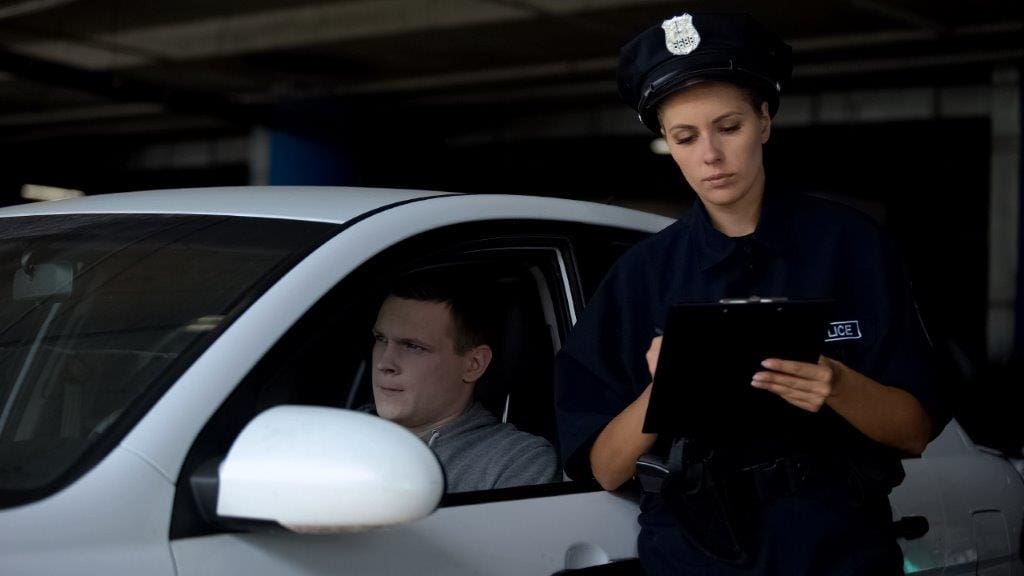When it comes to traffic violations, Florida is known as the Citation State.
Drivers in Florida were issued 2,986,986 tickets in 2019. That’s more than one ticket for every five people with a Florida driver’s license, and more tickets issued than in every other state except for California and New York.
Traffic Violation Statistics 2019
| County or State | Non-Moving | Moving (Non-Criminal) | Criminal | Total |
| Miami-Dade | 215,542 | 432,988 | 59,380 | 707,910 |
| Florida | 709,483 | 1,926,832 | 350,671 | 2,986,986 |
Florida’s Department of Highway Safety and Motor Vehicles (DHSMV) is estimated to make approximately $1.4 billion dollars in revenue for the state each year, or about $93.31 per licensed driver.
If you don’t want to add to this revenue, you’ve come to the right place.
Most people who receive a ticket decide to pay it and move on. For example, 95% of people who receive a speeding ticket will pay the fine without contesting it, thinking that the $269 for driving 15mph over the limit in Miami-Dade isn’t worth taking to court. However, paying these tickets comes with additional consequences, including demerit points on your driver’s license and higher insurance premiums, which can increase after a single ticket. The 5% of people who contest tickets are usually able to get their case dismissed or have their penalties reduced.
Your best defense is to know the law, the consequences of pleading guilty, and when you should hire a lawyer on your behalf. In this post we will cover:
- The differences between infractions, misdemeanors, and felonies
- Moving and non-moving violations
- Court procedures
- When you should hire a lawyer
Infractions, Misdemeanors, and Felonies
Traffic violations come in three levels of severity: infractions, misdemeanors, and felonies.
Infractions
A traffic infraction is an act or omission that’s prohibited by law but isn’t a crime. The most common traffic violations in this category include:
- Speeding
- Running a stop sign or red light
- Tailgating/following too closely
- Failing to signal before turning
- Driving at night without your headlights or having a broken tail light
- Making an illegal U-turn
- Driving in the HOV lane without a passenger(s)
- Not paying your Sun Pass
There are literally hundreds of different traffic infractions, and they all come with their own penalties, ranging from a few bucks to hundreds or even thousands of dollars.
Of the infractions, speeding is by far the most common. Be sure to take note of speed limits, especially in areas where they change frequently, including city streets and residential neighborhoods. Watching your speed also greatly reduces your risk of an accident.
Misdemeanors
Misdemeanors are less serious than felonies but more serious than infractions. They come in varying degrees, as do their penalties. Florida’s most common misdemeanor traffic tickets include:
- Knowingly driving with a suspended license
- Driving under the influence (DUI)
- Leaving the scene of an accident with no one seriously injured or dead (hit-and-run)
- Driving without insurance
- Driving without a license
- Reckless driving
- Possession of cannabis (20 grams or less)
All misdemeanors include the potential for jail time (maximum 1 year) and larger fines.
Felonies
Felonies are the most severe traffic violations. Some of these traffic tickets include:
- Leaving the scene of an accident with serious injuries or death (hit-and-run)
- Driving under the influence (DUI) for a 3rd time
- Driving with a suspended license for a 3rd time
Traffic felonies have a 5-year prison maximum and $10,000 fine, with the focus more on the length of a prison sentence.

Moving and Non-moving Traffic Violations
Two other categories of traffic violations worth noting are moving and non-moving violations.
Moving Violations
Moving violations occur when a traffic law is violated by a vehicle in motion. These violations get usually classified as “minor” and “major” violations, depending on what severity category they fall under.
Minor Moving Violations
Minor moving violations are generally infractions. They include:
- Less serious speeding offenses
- Driving too slowly
- Failing to stop at a red light
- Failing to stop at a stop sign
- Tailgating
- Failing to stay in lane
- Failing to stop for a school bus
- Driving without a seatbelt
- Failing to use a hands-free device which driving in certain designated areas
Major Moving Violations
Major moving violations more often land in the misdemeanor and felony categories. Their fines tend to be higher, and sometimes they can also result in the automatic suspension of your license of a high number of demerit points.
Major moving violations that results in a driver’s license suspension include:
- Driving under the influence or driving while intoxicated
- Leaving the scene of an accident (hit-and-run)
- Manslaughter or negligent homicide
- Reckless or negligent driving
- Drag racing
- Other felonious offenses where a vehicle is involved
Non-Moving Violations
Non-moving violations are infractions that occur when the vehicle is not moving. The most popular of these traffic violations include:
- Illegal parking
- Expired plates
- Driving without insurance
- Driving with expired registration
- Equipment-related violations (like a broken headlight or taillight)
It should come as no surprise that parking violations are the most popular kind of non-moving violations. You should contest them or pay them quickly because the fines increase – and sometimes even double – after 30 days.
| Non-Moving Violation Type | Initial Fine | Fine After 30 Days |
| Overtime and Restricted Parking | $36 | $62 |
| Improper Parking | $29 | $58 |
| Prohibited Parking | $46 | $72 |
| No Valid License Plate/Tag | $51 | $77 |
| Unlawful Parking in “Disabled Permit Only” Space | $253 | $253 |
| Obstructing Traffic | $124 | $170 |
| Freight Curb Loading | $79 | $120 |
| Other/Florida Statue | $34 | $60 |
| Stroller Parking | $52 | $52 |
| Unlawful Parking/Blocking Disabled Access | $153 | $153 |
| Displayed for Sale | $104 | $104 |
| Displays for Sale (Repeat Violations) | $504 | $504 |
Court Procedures
If you are ticketed for an infraction and want to fight it, you have to go to traffic court. If you’re accused of a misdemeanor or a felony, you have to go to criminal court. Both courts have differing sets of procedures and penalties, depending on the severity of the traffic violation.
Traffic Court
Traffic infractions are generally considered “strict liability” offenses. This means that the defendant is liable for committing an action, regardless of what their intent or mental state was when committing the action. For example, if you run a stop sign and get a ticket because of it, you’re liable for it whether or not you saw the stop sign. To contest the ticket, you have to go to traffic court.
Traffic court is considered less formal than criminal court. Since receiving a fine is usually the worst that can happen, jail time is rarely on the table, and even license suspensions are only reserved for drivers with multiple recent traffic convictions. Other penalties may include traffic school and demerit points, which can lead to increased insurance premiums and license suspension. As a result, a bench trial is your only option.
In some states, the burden of proof is also less formal in traffic court. Since infractions are usually considered “civil” offenses, the government might be held to a lesser standard of proof for traffic cases. However, in Florida, the burden of proof must be proved beyond a reasonable doubt. This means that the judge has to be almost absolutely certain of your guilt, which gives you a lot of latitude.
Criminal Court
If your traffic violation is classified as a misdemeanor or felony and therefore can be punishable by imprisonment, you will find yourself in criminal court. Whether a criminal traffic offense is considered a misdemeanor or a felony varies by jurisdiction. Many traffic offenses are crimes irrespective of circumstance, such as DUIs and hit and runs. Sometimes an infraction can be upgraded to a criminal offense. For example, if you are driving way over the speed limit during hazardous conditions, you may find yourself being charged for a misdemeanor instead of an infraction.
In certain scenarios, misdemeanors can be upgraded to felonies. This is common for repeat offenders, such as getting pulled over for your third DUI or if you’re leaving the scene of an accident where someone is injured or deceased.
Given the severity of the traffic violation, criminal court is more formal than traffic court. You almost always have to appear personally in criminal court during your arraignment. There, the judge advises you of the charges, penalties, and your constitutional rights – which include your right to a jury trial and to have a court-appointed lawyer. Like in traffic court, the prosecutor must prove that you committed the crime beyond a reasonable doubt.
If you plead or are considered guilty, you may experience jail time (up to one year in a county jail for a misdemeanor, and, depending on the crime, one or more years in state prison for a felony), heavy fines, community service, demerit points, probation or parole, have your vehicle impounded, and/or have your license suspended or revoked.
When You Should Hire a Lawyer
“Do I need a lawyer?” This is one of the most common questions people ask themselves after getting a traffic ticket.
Think of it this way: If you’re trying to sell your house, do you do it yourself or do you hire a real estate agent? If you run a small business, do you do your own taxes, or do you hire an accountant? You may save money by taking a do-it-yourself approach, but is it to your benefit?
Traffic Ticket Fees Add Up
A small fee can get very expensive very quickly. Let’s return to that earlier example, where you receive a $269 ticket for going 15mph over the speed limit. If you agree to pay it, you are pleading guilty, and may also have to pay a surcharge fee. This fee is small, but still inconvenient. You then get 3 points on your license (12 points within 12 months leads results in a 30-day suspension) and run the risk of your insurance premium going up.
Insurance premiums can increase after a single traffic ticket – even if you don’t accrue any points. Some people have experienced increase rate increases of up to 82.2%.
If you’re speeding, you may experience an increase of around 23.2%. If you’re currently paying $2,400 a year for insurance, a single speeding ticket can cost you an additional $556.80 a year. All of a sudden, that $269 speeding ticket ($279 after the surcharge fee) now costs you $835.80 and an extra $566.80 each year until it either falls off of your record in 10 years or after you get your premiums lowered.
Traffic violations lawyers often live and breathe traffic law and have appeared in court countless times. Depending on the violation, they can even go to court on your behalf so that you don’t have to. By knowing what to argue – and what not to argue – they offer a much better chance of successfully reducing your penalties or getting your case dismissed altogether.
If your ticket is a small fine and will have no additional repercussions, including demerit points or a risk to your insurance premiums, it may not be worth fighting. If it is worth fighting and you aren’t an expert in traffic law, hiring a lawyer is your best option.
FAQs
Q. What is the difference between speeding and reckless driving?
- Speeding involves going over the speed limit. If you’re driving 10 miles or less over the limit, it’s usually considered a minor offense. If you’re driving way over the speed limit, it’s considered a major offense and can also be considered reckless driving. Reckless driving is defined as a willful or wanton disregard for the safety of persons or property while operating a vehicle. This can be excessive speeding, drunk driving, fleeing from an officer, drag racing, etc. It’s considered a crime, not an infraction like most speeding tickets are, and thus the penalties are usually more severe.
Q. What is traffic school?
- Traffic school involves taking remedial course in road-traffic safety and safe driving practices. If you receive a ticket for some types of moving violations, you may have the option to attend traffic school and take a course in traffic safety in exchange for having the ticket officially wiped from your record. Other benefits may include remove points from your driving record, gaining insurance discounts, and learning more about driving safety techniques.
Q. What are demerit points and how do they work?
- Demerit points are points that you accumulate when you commit traffic violations. Point amounts vary based on the severity of the violation, and if you accrue too many points over a certain period of time, you run the risk of getting your driver’s license revoked or suspended. Speeding, careless driving, and failure to stop at a steady red signal cost you 3 points. Reckless driving and failure to obey traffic control signals will cost you 4 points.
| Total Points | Time Period | Suspension Length |
| 12 | 1 year | 30 days |
| 18 | 1.5 years | 3 months |
| 24 | 3 years | 1 year |
Q. How long do traffic violations stay on your record?
- Citations stay on your record for 10 years. Suspensions last for 7-11 years, alcohol-related violations last for 75 years, and serious CDL (commercial driver’s license) violations last for 55 years.
Q. Can I refuse a Breathalyzer test if I get stopped for drunk driving? What happens if I do?
- Under Florida’s implied consent law, if a police officer has a reasonable suspicion that you’re intoxicated, you have to submit to a chemical test. Refusing to do so will result in the immediate suspension of your driver’s license, and you will not be able to drive for at least a year. If this is the second or third time that you are refusing you blow, your license will be suspended for 18 months, and you could face jail time.


